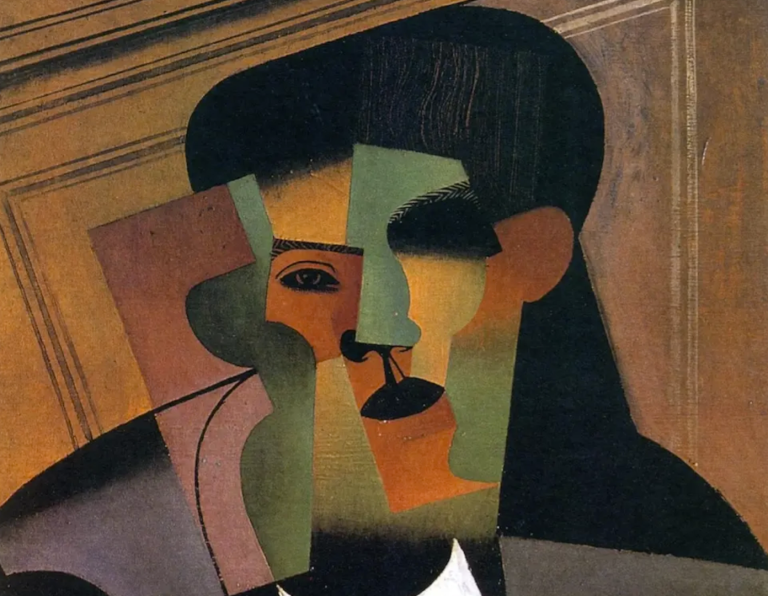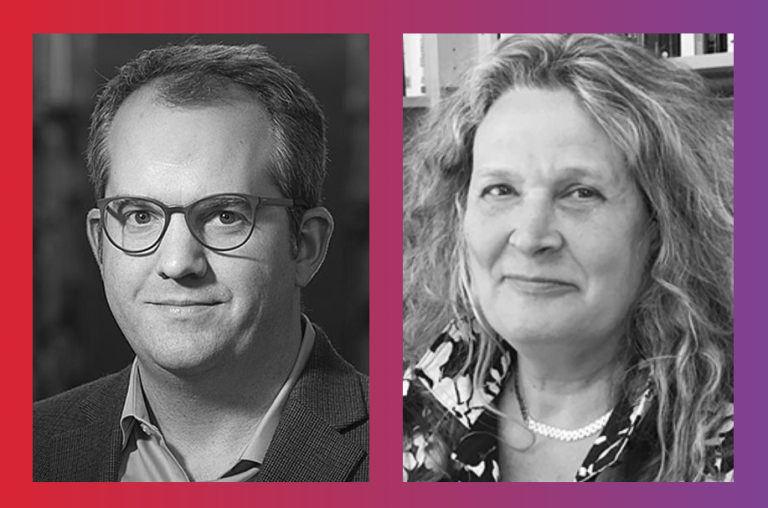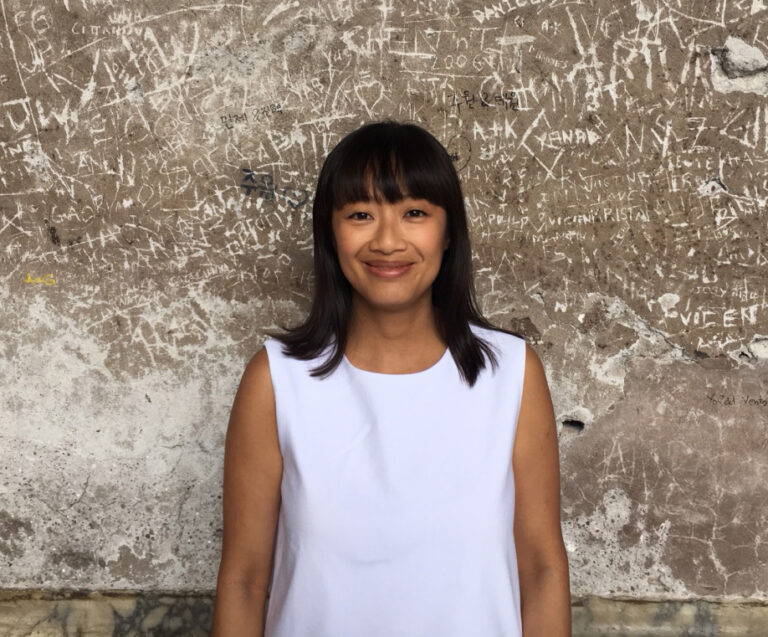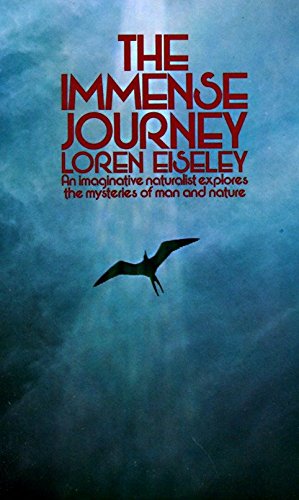goes to researchers who are particularly creative in their science communication, taking new, courageous paths and addressing their target groups in suitable and effective ways. They must also recognise the societal dimension of their research and contribute their knowledge to public debate, opinion-forming and decision-making processes. The prize money supports the recipient’s public engagement activities and enables them to implement new projects.
The denXte project includes a series of live events on philosophical issues, a podcast, videos, surveys, and social media interactions, among other things. In addition to Professor Schrenk, the team includes postdocs Amrei Bahr and David Löwenstein, as well as four philosophy students: Julia Frese, David Niemann, Christoph Sapp and Berit Weiß.
The… team set itself the task of inviting people with no previous knowledge of philosophy to engage in dialogue about socially relevant topics through the format of the philosophical thought experiment. In the process, participants not only contribute their own questions and arguments, they also get to learn about the basic intellectual tools of philosophy along the way…
The award includes a prize of €50,000 (approximately ,500).
The German Research Foundation (Deutsche Forschungsgemeinschaft, or DFG) has named “denXte,” a public philosophy project led by Markus Schrenk (Düsseldorf), the winner of its 2022 Communicator Award.
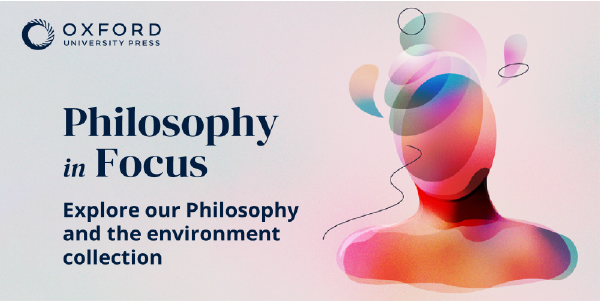
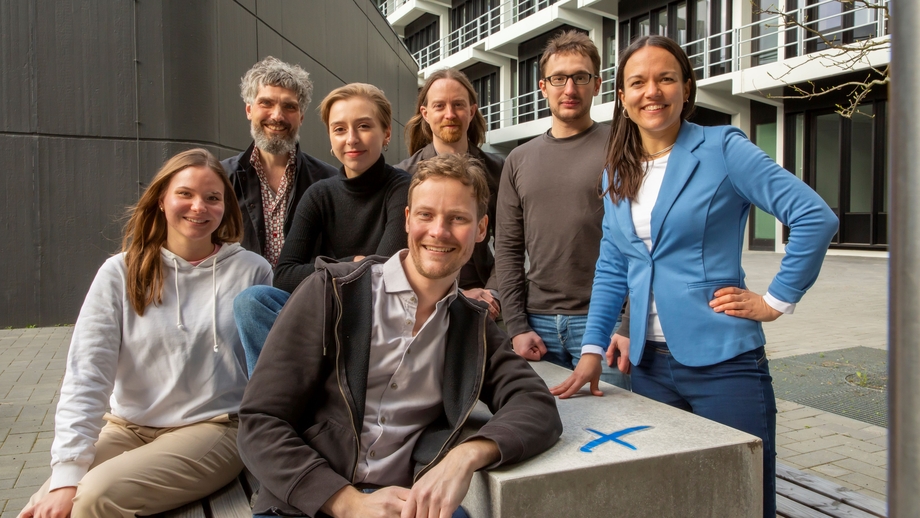
According to press release from DFG, the Communication Award
The project was praised by the DFG for its “participatory approach to arousing interest in philosophy”:
You can learn more about denXte here, and about the award here.
(l to r): Berit Weiß, Markus Schrenk, Julia Frese, Christoph Sapp, David Löwenstein, David Niemann, Amrei Bahr
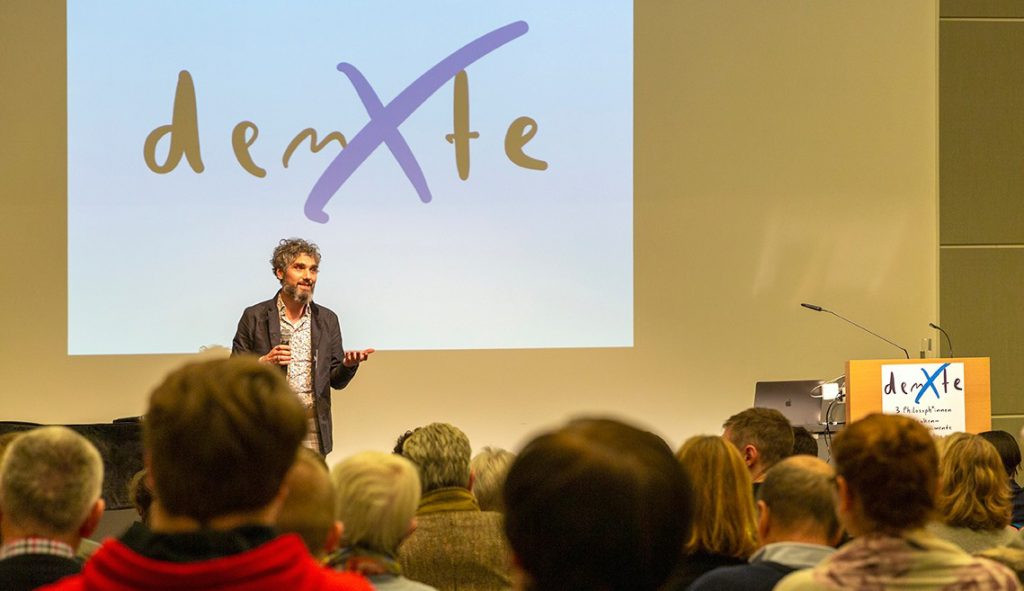
The project goes beyond the mere communication of academic facts and focuses on a facet of science communication that has been little illuminated: it trains the capacity to think and to negotiate problems in a rational and systematic way. This is particularly important in times of debate and conflict, in which it is becoming increasingly difficult to form one’s own opinion.

